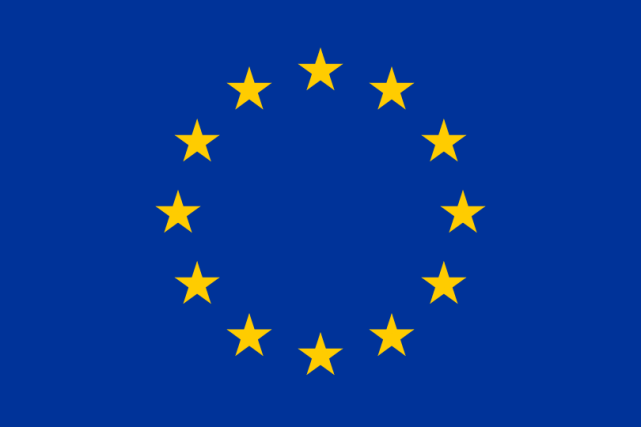União Europeia (UE): É o bloco econômico mais importante do
mundo tendo 27 países-membros os quais utilizam como moeda principal o
Euro. Lida com aspectos: socioeconômicos, políticos, e demográficos da
Europa. Também apresenta a livre circulação de pessoas.
Instituições da UE:
- Parlamento Europeu: É uma das câmaras do poder legislativo da União Europeia. Esse órgão decide sobre o orçamento da UE exerce controle democrático sobre as instituições e nomeia membros do Conselho da UE.
- Conselho da União Europeia: Tem função legislativa. Além de votar o orçamento do bloco, também decide sobre questões da Política Externa e de Segurança Comum, firma acordos internacionais e articula a relação entre seus países. Na prática é considerado a principal instituição de todo bloco. Sua sede fica em Bruxela a qual é considerada capital da UE.
- Conselho Europeu: Reúne os chefes de governo dos países-membros. Não tem poder legislativo nem executivo, mas é essencial para a articulação de políticas internas e relações com países fora do bloco.
- Tribunal de Justiça da União Europeia: Sendo a principal instituição do poder judiciário do bloco garantindo a interpretação uniforme das leis da UE e julgando a disputa entre países, empresas e pessoas no âmbito do bloco.
- Tribunal de Contas Europeu: Tem como objetivo examinar a entrada e saída de dinheiro das instituições europeias e também auditar o comprometimento do orçamento
- Comissão Europeia: Apresenta o poder legislativo também localizada em Bruxelas, propondo a legislação, as políticas e os programas da UE, implanta as políticas definidas pelo poder legislativo e executa o orçamento do bloco
- Banco Central Europeu: Dita a mais recente e localizada em Frankfurt(Alemanha). Foi criado 1998 promovendo a unificação da política econômica e monetária da União Europeia trabalhando junto aos bancos centrais dos países da Zona do Euro
Zona do Euro: É o nome dado ao conjunto de países que adotam o
euro como suas moeda oficial.Nem todos os países da União Europeia
adotam o euro e há países que, embora não sejam da União Europeia,
adotam o euro.
UE no mercado internacional: A Europa é o berço do capitalismo, bem como o desenvolvimento industrial. Atualmente a Europa possui o segundo PIB entre os continentes. Em 1975 os maiores PIBs formaram um grupo de sete países (G7). Entre eles quatro são Europeus: Alemanha, Reino Unido, França, Itália.
Principais atividades econômicas: Agricultura, pecuária, extrativismo, silvicultura e pesca, mineração, indústria, turismo e entretenimento.
Europe’s Economy
European Union (EU): Is the most important economic bloc, having 27 member countries, which use the Euro as the main currency. Deals with: socioeconomic aspects, politics and the demography of Europe. Also presents a free people circulation.
EU Institutions:
- European Parliament: Is one of the legislative power chambers of the European Union. This organ decides the budget of the EU, exert democratic control over institutions and name members of the EU council.
- European Union Council: Has a legislative role. Besides voting the budget bloc, also duties foreign political issues and Common Security, firms international deals and articulate the relation with its countries. In reality it is considered the main institution of the bloc. Its headquarters are located in Brussels, considered the capital of the EU.
- European Council: Unite all governors of the member countries. Does not have legislative power nor executive, but it is essential.
- European Union Justice Council: Being the main institution of judiciary power of the bloc, ensuring the interpretation of laws from the EU, and judging a conflict between the countries, companies and people in the scope of the bloc.
- European Accounts Tribunal: Aims to control the entry and exit of money in the institutions, and audit the budget commitment.
- European Commission: Presents the legislative power, also located in Brussels, proposing the legislation, the politics and programs of the EU, deploy the defined politics by the legislative power and the budget bloc.
- European Central Bank: Stated in the most recent and is located in Frankfurt (Germany). It was created in 1998, promoting the unification of the political economy and monetary system of the EU, working together in central banks of countries in the EuroZone.
EuroZone: Is the name of the set of countries that embrace the euro as its main currency. Not all countries in Europe embrace the euro.
UE in the international market: Europe is the cradle of capitalism, as well as industrial development. Europe currently has the second GDP among the continents. In 1975 the highest GDPs formed a group of seven countries (G7). Four of them are European: Germany, United Kingdom, France, Italy.
Main Economic Activities: Agriculture, livestock, extraction, forestry and fishing, mining, industry, tourism and entertainment.
Source: Apostila SAE Digital 3, 9º ano
Members of the group: André Ingechak Dallabona, Bruno Rodrigues Di Mario, Eduardo Pazini Sari, Henrique Kravchychyn Rodrigues, João Pedro Chaves Taets Garcia e Rafael Moreira Martins.

